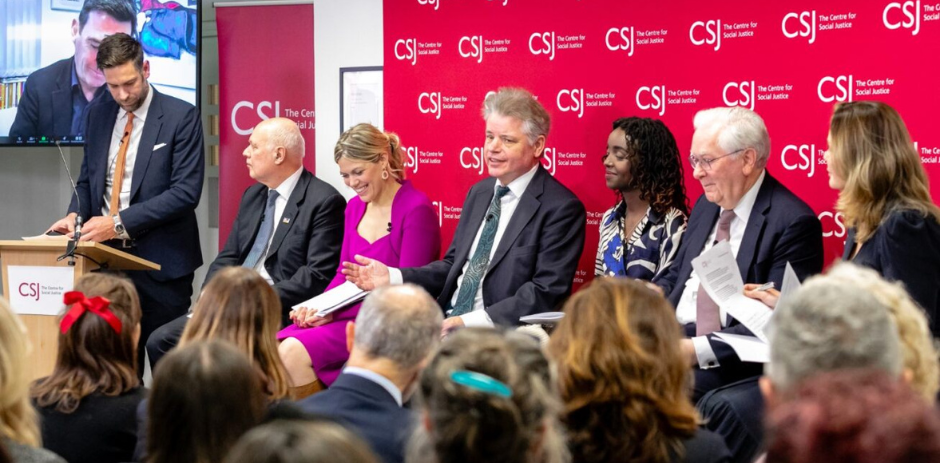By Hannah Biggs and Jo Wildman, Scottish Centre for Social Research (ScotCen)
Being disabled, or living in a disabled household, are some of the strongest predictors of poverty in the UK; with nearly half of all people in poverty living in a household where someone is disabled.
The cost-of-living crisis has caused sharp increases in food insecurity among disabled people in the UK. Food insecurity can be defined as worrying about affording food, cutting back on the amount of quality of food you eat, or going without food due to a lack of money. The Trussell Trust’s 2023 Hunger in the UK report found that 69% of working-age people referred to food banks in the Trussell Trust network across the UK are disabled, three times the level seen in the general population (23%). The Hunger in the UK report also identified widespread underclaiming of disability benefits among disabled people referred to Trussell Trust foodbanks.
In February 2023, the Trussell Trust commissioned the Scottish Centre for Social Research (ScotCen) to carry out a study exploring the reasons for the overrepresentation of disabled people accessing food banks and the underclaiming of disability benefits among disabled people using food banks. Over the course of the study, 57 disabled people from across the UK took part in in-depth interviews.
The study aimed to provide an evidence base for the development of policy solutions to reduce the need for food banks among disabled people across the UK. The research was published in November 2023.
What the research found
Our study identified several causes of food insecurity among disabled people – many linked to issues of accessibility caused by a widespread lack of understanding of disability or, in some cases, stigma and prejudice directed at disabled people.
We found that disabled people were frequently excluded from employment due to inaccessible or inflexible employment structures where they were denied their legal entitlement to reasonable adjustments.
Disabled people also faced extra costs in the treatment and management of their impairments and health conditions that were not provided by the NHS or local authorities. Overall, participants found it difficult to meet their day-to-day living costs let alone the extra costs associated with their impairments.
We found that disabled people were also frequently excluded from the social security benefits that should have helped with disability-related costs or supported them if they were unable to work. Participants described the challenges they faced when applying for disability benefits.
A lack of awareness of the eligibility criteria, and stigma associated with claiming benefits caused people to not apply, or delay applying for disability benefits. Those who did apply found the application and assessment process complicated and repetitive as well as physically and emotionally exhausting. A participant in Northern Ireland described their experiences of being assessed for disability benefits:
“It makes you feel labelled. It makes you feel less than human. You’re very much dehumanised. You are a number; you are not a person. It can be quite degrading. There has to be a better way, there has to be.”
The ‘one-size-fits-all’ processes prevented participants from fully communicating the impact of their impairments and health conditions which could result in a failed application. The distress and trauma involved in applying for Personal Independence Payment (PIP) meant some disabled people did not challenge a refused claim. A participant in Wales explained why they hadn’t challenged their unsuccessful claim:
“It was really violating, the whole process. The questions they asked, the way they made me feel. It made me feel like I was a scrounger, and I’ve always worked. Not like big, important jobs, but it’s always work, so we supported [name of child]. It just made me feel like I was worthless, and I just thought, ‘No, I can’t do it’.”
The cost-of-living crisis worsened the financial situation of many disabled people. Rapidly rising food prices were a universal source of concern. With financial resources severely limited, the requirement to pay essential bills such as rent, utilities and council tax pushed buying food down the list of priorities. People had sought food aid when they reached a crisis point, when a visit to a food bank meant the “difference between eating and not”.
What needs to change?
Solutions to food insecurity among disabled people are embedded in the social model of disability and focus on changing social structures and attitudes and challenging prejudices and assumptions about disabled people.
Improving the accessibility of the disability benefits system is part of the solution. However, increasing uptake alone will not be sufficient to relieve food insecurity for disabled people. This research adds to a wealth of previous evidence that the value of both disability and incapacity benefits is inadequate. These benefits are also not designed to take into account the full complexity of disabled people’s lives and the ways in which this complexity can increase costs associated with disability. The value of disability benefit needs to increase, alongside other changes to improve the financial security for disabled people. Policy solutions developed as a result of the research findings are outlined in the full report.
This article is featured in our 7 February newsletter. To get more articles like this delivered straight to your inbox, sign up to our mailing list.
























